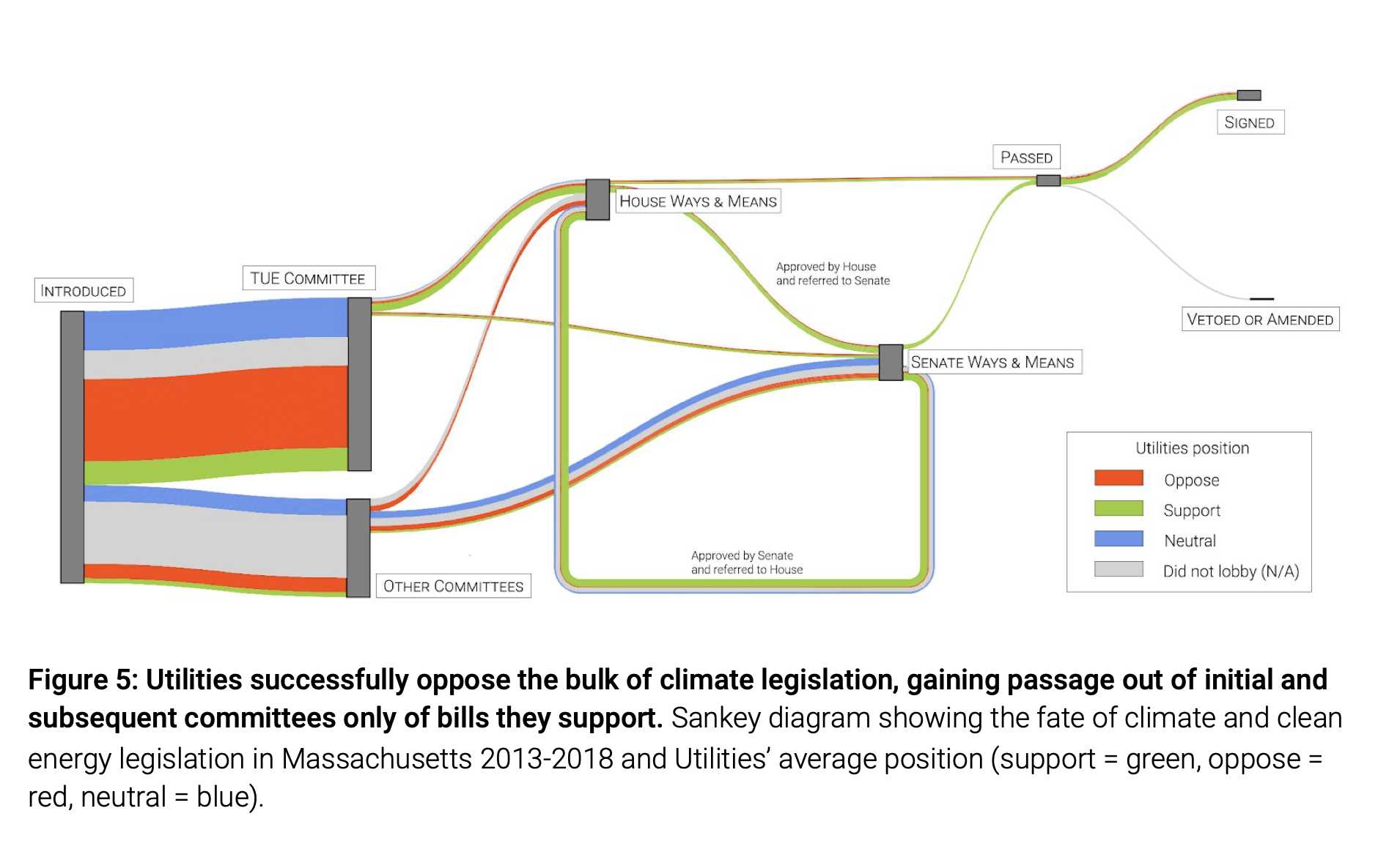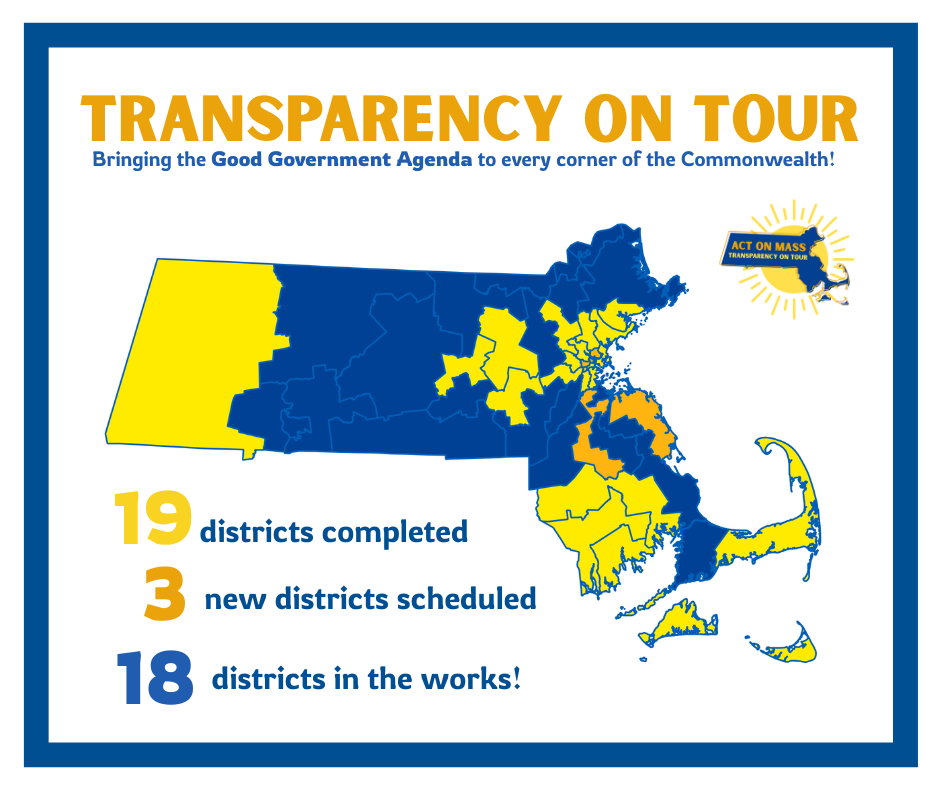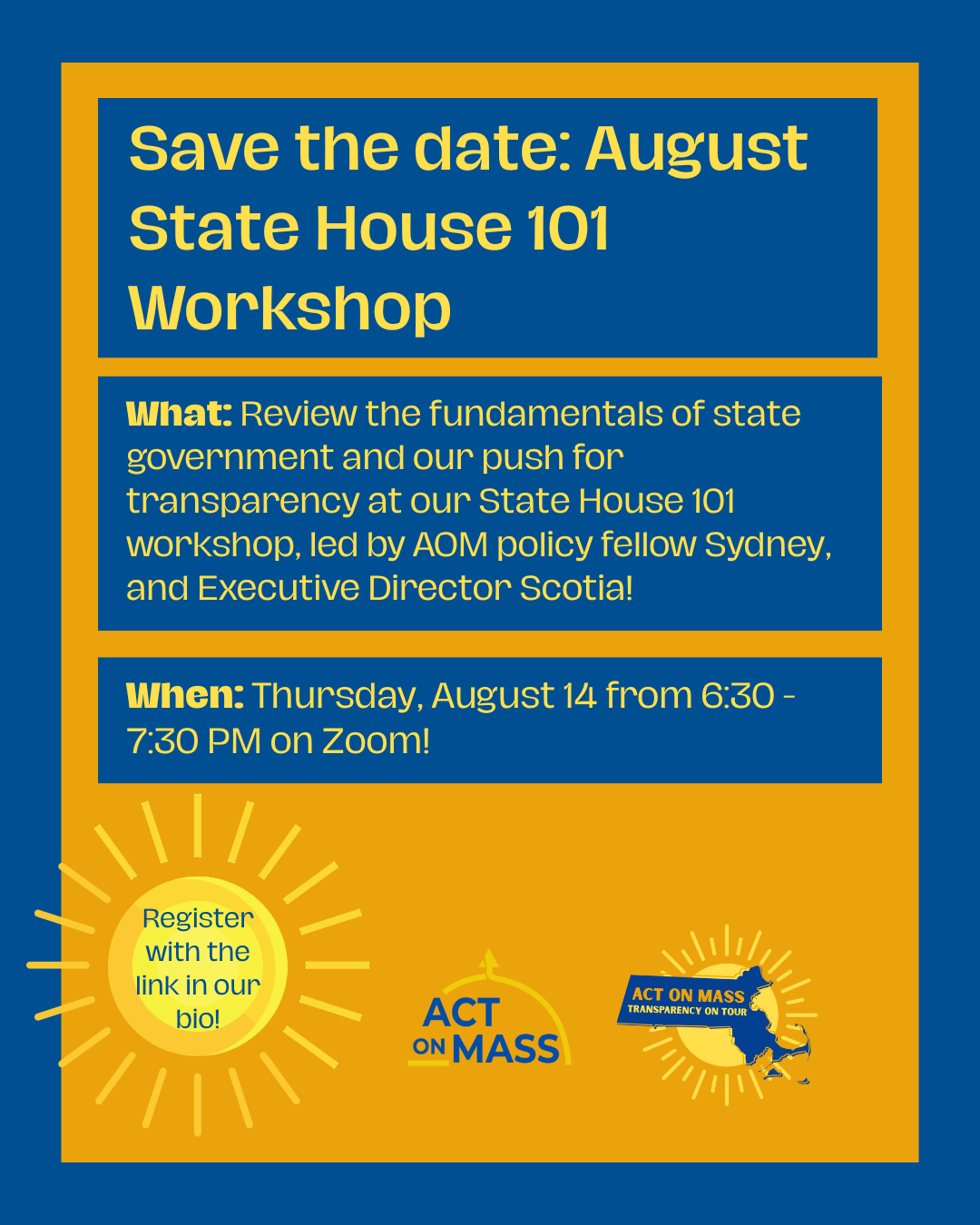Happy August,
With August recess in full swing, legislators took time off from lawmaking this week to schmooze with other lawmakers at the National Conference of State Legislatures, including performances by Boyz II Men (!!) and an elaborate fireworks display. Meanwhile, the citizenry stepped into the fray: Wednesday saw an important first deadline for groups hoping to make changes to Massachusetts law via ballot question in 2026.
42 ballot questions have now been filed with the Attorney General’s office, which has until September 3rd to certify the questions, in line with constitutional requirements. Then, supporters have until December 3 to gather the requisite 74,574 signatures to clear the next hurdle. Click here for a brief overview of a few of these questions. Including…
Spoiler alert: Act on Mass, with our partners in the Coalition to Reform Our Legislature, is taking steps towards the ballot! We are hoping to bring our “stipend reform” legislation– which you might remember from the Good Government Agenda– to the voters in 2026. This question would take the power over legislators' pay out of the hands of leadership and allow our rank-and-file lawmakers to act freely on our behalf without risking their own livelihoods. We’ll definitely be reaching out for help with signature gathering, so keep an eye on your email.
Today, we’re going to do a deep dive into another issue that’s being targeted on the ballot this year: the housing crisis. Advocates fed up with the legislature’s decades-long inaction on municipal option tenant protections are making a bid for the ballot. Many of the dynamics behind this move illustrate unfortunately common problems with our legislature’s approach to lawmaking. Let’s get into it!
---
State House Scoop
What’s blocking tenant protection policies in Massachusetts?
Earlier this year, polling showed that MA voters think “housing” is the single biggest issue facing our state government– above any other issue, including inflation and immigration. This result would be unsurprising for anyone who’s spent time reading local news or talking to Bay Staters. Last year, Massachusetts had the third highest monthly rental costs in the country. We also ranked third highest for median price to buy a home. Everyone is feeling the pinch.
Unfortunately, the government capable of tackling this crisis is more familiar with bottom rungs: last session, the Massachusetts legislature ranked 50th among the 50 states in effectiveness. The major housing policy passed last session was a borrowing bill that is not expected to dramatically increase investment or alleviate rent burdens. Meanwhile, 86% of lawmakers in MA are homeowners, a figure that is far from representative of the housing challenges faced by their constituents. In fact, there are more landlords in our legislature than renters.
What’s more, the real estate industry wields considerable influence (paywall) on Beacon Hill, and is one of the biggest spenders on lobbying in the state. Furthermore, workers in real estate were the single biggest contributor to the campaign accounts of Beacon Hill leadership last year. If they’re doing pay-to-play, it seems to be working: their influence has allowed them to block popular proposals (paywall) intended to alleviate the housing crisis.
To be fair, the legislature has passed some significant housing policies in the last few years. However, a deeper look at those policies suggests that these landmark policies were ones that got explicit approval from the real estate industry– and all stopped short of interfering with moneyed interests’ ability to extract maximum profit from housing.
For example, the historic MBTA Communities Act requires towns near transit stops to upzone for multifamily housing, but does not provide funding for or even require the construction of housing. Promoted by the Republican Baker administration, it assumed that private developers would come in and take advantage of new zoning, boosting supply and lowering rents in the long run. In fact, industry news suggests that the MBTA Communities Act has been a huge boon for local real estate. Don’t get me wrong: new housing is desperately needed and transit-oriented development is smart. But the effects of this legislation will take a while to be felt and do not exactly represent the legislature picking the little guy over the big guy.
A similar story appears for the recent ban on tenant-paid broker fees. Although this fixes an exploitative practice that raised costs for renters at the beginning of a rental agreement, it has no impact on the rest of a rental cycle and is unlikely to lower monthly rental costs. Indeed, the policy was supported by the Greater Boston Real Estate Board and a major landlords association.
Meanwhile, policies that garner widespread public support but would genuinely challenge real estate profits, such as rent control or a high-value real estate transfer fee, die session after session without a vote. Even limited policies, such as “home rule” petitions that would allow more stringent tenant protections within a single municipality fail repeatedly on Beacon Hill. A quotefrom Somerville City Councillor Ben Ewen-Campen is pretty telling:
“It’s just infuriating to have to tell people who live in Somerville that our powers are really limited at the local level… The real estate industry has a much easier time getting their way politically on Beacon Hill than they would in a city hall of a city where our constituents are facing this hellish housing crisis.”
Moneyed interests given veto power on Beacon Hill– a tale as old as time
It’s a pattern we’ve seen in policy-making on Beacon Hill before. A Scoop reader recently reminded me of a graphic that illustrates the blockage that popular policies face on Beacon Hill. You might recognize it from an Act on Mass workshop. It’s from a report completed in 2021 by a policy center at Brown University, entitled “Who’s Delaying Climate Action in Massachusetts?”

The (admittedly complex) graphic shows the fate of climate legislation in Massachusetts, between 2013 and 2018. On the left is the quantity of climate bills introduced. The colors indicate whether the utilities industry was lobbying against the bill (red) or in support (green). The rightward flows represent their passage– or not– through the legislative process. A key detail: during the same period, public testimony on these bills favored their passage by about 90%.
First takeaway: it is remarkable how few bills make it through the legislative process, illustrating the importance of transparency in committees. Of 245 climate and clean energy bills introduced during this time period, the study found that only 9 made it to a vote by the full legislature– despite their popularity with the public. At a time where committee votes were not published, this meant that 96% of bills never got a public vote. Getting public committee votes with the new rules means that we the people can finally get a glimpse at what’s happening when the bills we support die in committee.
Secondly, most of the bills that did make it out were those few which had the support of the utilities lobby. I’ll quote their findings: “Bills that utilities supported were far more likely to make it into the powerful Ways and Means committees, and then eventually be enacted into law. Similarly, bills that utilities opposed were far less likely to move forward, and utilities’ preferences had a far higher correlation with outcomes than did any other coalitions.”
So, how does that relate to the push for tenant protections in Massachusetts? Well, it seems that a similar dynamic is at play:
- Sparse policy action, despite the crisis and the public support for swift action.
- The policy action we do get happens to be supported by powerful moneyed interests with access to leadership.
- Meanwhile, policies opposed by moneyed interests die without a vote.
- Rinse, repeat.
Seeing this pattern time and again in the legislature is one reason that Act on Mass has decided to take on Beacon Hill’s power structures directly with our ballot question. Currently, decision-making power is concentrated in very few hands, with rank-and-file lawmakers discouraged from actively participating in the legislative process or making up their own minds on legislation. This empowers moneyed interests, who can use their abundant time and resources to target a few key members of leadership and heavily influence legislation. Meanwhile, everyday citizens have to resort to the ballot to have our voices heard.
With your help, we can make sure that ends in 2026!
Meanwhile, you can let your legislator know that we want to see action on tenant protections by sending them an email today using this convenient form by our friends at Progressive Mass.
TELL YOUR REP: SUPPORT TENANT PROTECTIONS>>
Worth reading: more stories from this week
Some other important stories from Beacon Hill this week:
- Another angle on the fight between the legislature and bar advocates that we've covered in recent Scoops– prisoners say they have been inadequately served by the state's public defense program
- One month later, reporters uncover an unnoticed policy rider that leadership tucked into the FY 2026 budget: more flexibility on liquor licenses for municipalities (paywall).
- A new study highlights significant "childcare access deserts" across the Commonwealth
Transparency on Tour: Progress Report

Let's keep building our movement! Upcoming dates:
- Fall River Farmers & Artisan Fair, August 3rd - 10 am - 2 pm in Fall River
- Central Square Farmers Market, August 11th - 12 pm - 6 pm Central Square, Cambridge
- Marshfield Farmers Market, August 15th, 2-6 pm on Ocean Street in Marshfield
- Braintree Farmers Market, August 30th, 9-1 pm at Braintree Town Hall
- North Adams Farmers Market, September 20th, 9 am - 1 pm Main Street in North Adams
If one of these are in your district or a district you want to visit, join us to table!
HELP US HIT 40 DISTRICTS THIS SUMMER>>
Bilingual? Act on Mass seeks translating help
Another way to help us out with our Transparency on Tour initiative: translating some of our literature into common second languages! We are particularly looking for Spanish and Portuguese speakers. If you might be able to help us translate a flyer or two, please reach out to Scotia at scotia@actonmass.org.
---
Missed a Scoop or two? You can find a full archive of all past Saturday Scoops on our blog.
---
---
Take Action
Join us for State House 101! - This Thursday August 14th, 6:30 PM

Join Act on Mass for an intro or refresher on state house fundamentals: how it should work, how it does work, and what we can do about it. This Thursday August 14th from 6:30 pm - 7:30 pm on Zoom.
Help us support a documentary about Beacon Hill dysfunction
Shadows on the Hill is a documentary about the real reason popular bills don’t pass: leadership decides which ones live, which ones die, and who gets punished for speaking out. The film is fundraising now to finish production.** Watch the trailer (featuring a familiar face!) and help amplify the campaign.**
Tell Gov. Healey and your reps: no to $360 million in new prison spending!

Our allies at Free Her MA have put together an action kit: use it today to take a stand against new prison spending!
"NO" TO $360 MILLION FOR WOMENS PRISON>>
---
That's all for this week's Scoop, see you next week!
In solidarity,
Scotia
Scotia Hille (she/her)
Executive Director, Act on Mass
